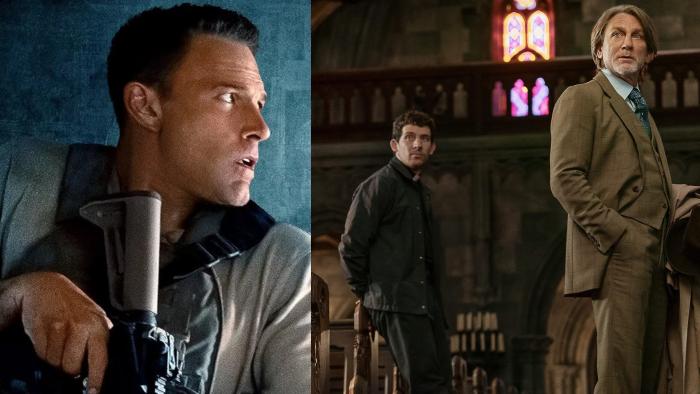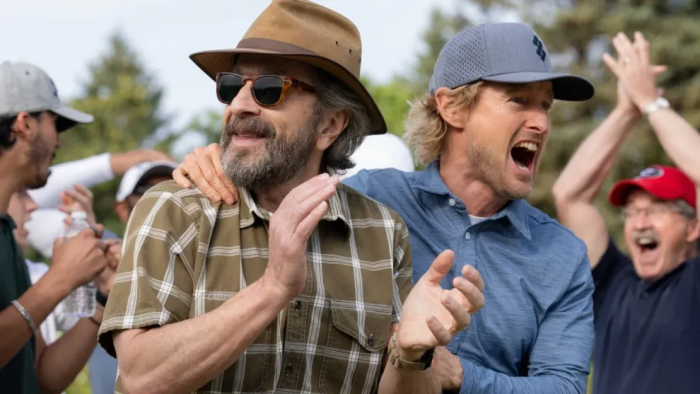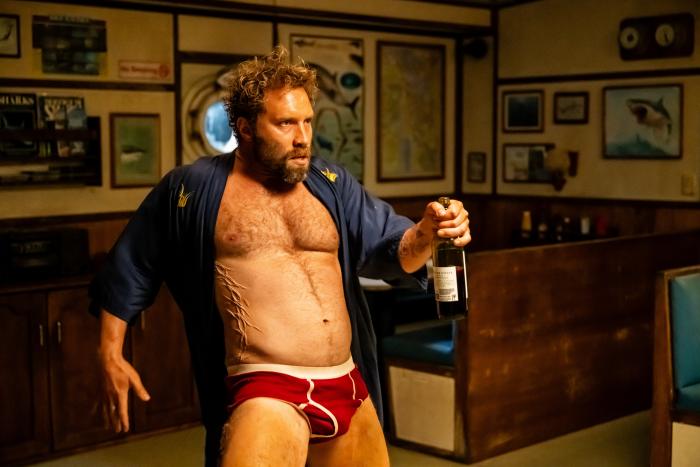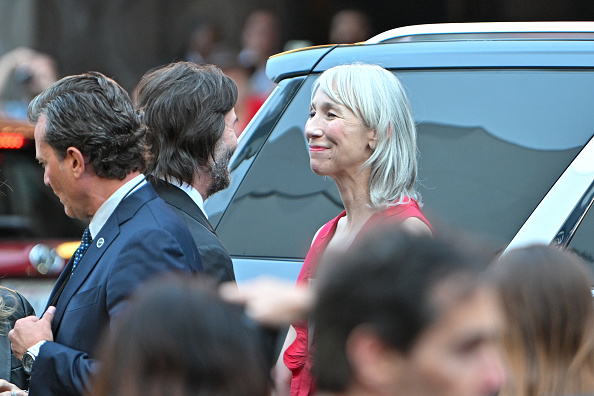
How 'The Accountant 2's Release Strategy Makes Netflix's Anti-Movie Theater Attitude Extra Infuriating
By Lisa Laman | Film | June 5, 2025

On June 5, 2025, The Accountant 2will debut on Amazon Prime Video. This will come after the film had a 41 day theatrical-exclusive release courtesy of Amazon MGM Studios. That streaming debut was kept secret until just a few days before its Prime Video premiere. Up until then, Amazon MGM Studios emphasized Accountant 2 as a theatrical-exclusive motion picture, complete with dropping its first trailer almost three months in advance and premiering Accountant 2at a buzzy South by Southwest screening.
Amazon’s relationship with theater owners hasn’t been flawless. Just look at the very understandable fury theater owners had over Amazon sending Red One to streaming only 27 days after its theatrical premiere. If Air’s 37-day theatrical exclusivity two years ago is anything to go by, Amazon MGM Studios titles that aren’t caught up in pre-existing contacts to stream first on MGM+ (like Challengers or Creed III) will drop on the streamer within 35-41 days save for Red One. It’s not an ideal scenario (longer theatrical windows are always better), but Accountant 2’s balancing of theatrical and streaming launches is certainly preferable to Netflix’s relationship with theater owners. Streamers like Prime Video playing nice with the big screen just makes Netflix’s hostility to theatrical cinema extra infuriating. And boy, you know something must be wrong with Netflix if I’m using something Amazon-related as a POSITIVE example.
For context: Netflix sends its movies directly to streaming. A select few motion pictures annually open in a handful of movie theaters (chiefly the two or three Netflix owns). Movie theaters understandably desire a little more space between the big screen debut and small screen premiere. Netflix has refused to cooperate with that desire even as the theatrical window (the distance between theatrical premieres and home viewing debuts) has collapsed. Pre-March 2020, that window was 90 days without exception. Now, Universal and Focus Features can send certain titles to premium video-on-demand after just 17 days. Things have gotten more flexible …except for Netflix’s approach to theaters.
Netflix’s contempt for theater owners has existed since the streamer started producing original movies in October 2015 with Beasts of No Nation. Many of those vitriolic comments come from Netflix CCO Ted Sarandos, who defended sending films straight to streaming all the way back in 2015 at Cannes that “movies will be more profitable if consumers had more choice” regarding where they watched films. Amusingly, this position was defended at the time by Harvey Weinstein, a good sign that you’re on the right side of cinematic history. Sarandos lambasted as theatrical releases as “outdated” in a 2017 Variety profile. In 2019, plans to give Netflix’s The Irishman a traditional theatrical release almost came to fruition but collapsed due to Netflix’s behavior and inflexibility. Years later, theater owners felt back-stabbed by Sarandos, dubbing plans to give Glass Onion a one-week wide theatrical release as a one-off. Rather than trying to build up a relationship with independent theater owners, Sarandos hand-waved them away.
Sarandos continued this trend as late as April 2025 when he called movie theaters “outdated” while Netflix co-founder Reed Hastings declared that movie theaters were “hurting the film industry” in 2016. This behavior from Sarandos and other Netflix head honchos isn’t surprising on multiple levels. For one thing, of course, they’d parrot the idea that “theaters are dead, streaming is the future.” Their jobs depend on that concept’s normalization. It’s like rich schmucks like the Russo Brothers trumpeting how “AI is the future!” while paying AI experts to work for the company. The livelihood of independent theater owners seems to fall on deaf ears when it comes to Sarandos, Hastings, and other Netflix higher-ups.
This out of touch approach to theatrical releases from Sarandos and other Netflix heads echoes the alleged “selfishness” associated with Silicon Valley types for eons now. These tech figures boast about “changing the world” and “creating the future,” yet all their initiatives tend to hurt the environment, benefit the 1%, and reinforce harmful status quo’s for marginalized populations. Independent theater owners (read: those that aren’t AMC, Cinemark, or Regal) could really use extra titles year-round to bolster movie theater attendance and create jobs for working-class folks. Ditto actors and below-the-line workers that would benefit from movies reaping long-term residuals and benefits tied to traditional theatrical releases.
That kind of cooperation with the proletariat is not in Netflix’s DNA. Under the guise of offering people “choices,” Netflix keeps its movies behind paywalls and refuses to let them exist on either the big screen or physical media. Sarandos once declared how Netflix’s exclusive “movies will be more profitable if consumers had more choice.” How come then I can’t get Region 1 Blu-Rays of May December, Da 5 Bloods, Shirkers, The Death of Dick Johnson, or Hit Man? How come I didn’t have the option to watch those and other motion pictures on the big screen? The only “revolution” Netflix is doing with its original movies is giving viewers fewer options than ever to enjoy motion pictures. Turns out, the “future” of cinema is extremely limiting and involves handing over power to a handful of white boy tech overlords.
Accountant 2 getting 41 days of theatrical play before going on to Amazon’s streaming platform provides a theatrical release blueprint that Netflix could easily follow. It’s a model the general public is now banging on Netflix’s door to embrace. Shortly after the company’s Tumdum event (where it showcased upcoming movies and TV shows), the first trailer for Guillermo del Toro’s Frankenstein debuted. Per The Hollywood Reporter, folks across the internet lamented that the title would debut on the small screen and not in theaters. High-profile actors and artists like Tony Revelori then shared the Hollywood Reporter piece on Instagram stories and other social media platforms while expressing a desire for Frankenstein to get a normal theatrical run. A similar demand greeted the first trailer for the new Benoit Blanc adventure Wake Up, Dead Man.
It’s doubtful Netflix’s higher-ups will actually listen to what its customers want. Adding a 41-day-long theatrical-exclusive run would do nothing to minimize its streaming presence. It would just be an additional way to experience Frankenstein and Dead Man , broadening the accessibility and notoriety of these titles. Netflix’s corporate ethos runs against the concept of catering to the customer and artists and cooperating with other human beings. Instead, the focus of Netflix in the near future will inevitably be more price hikes, hideous generative A.I. advertising, and signing deals with stand-up comics who make racist jokes.
If there’s any consolation for a bitter, grudge-wielding woman like me (who has many friends in the entertainment and theatrical exhibition industry affected by Netflix’s adverse impact on the entertainment scene), it’s one recurring element across interviews I uncovered for this piece. Throughout the last decade, Netflix’s leaders have amusingly admitted that they haven’t gotten original movies quite right just yet. In that 2017 Variety interview, Sarandos proclaims future cultural punchline Bright will change Netflix’s film future forever. In 2021, former film head Scott Stuber declared the costly 2019 Ryan Reynolds film 6 Underground a boondoggle. Stuber also later admitted that it was doubtful The Gray Man,, once a much-hyped franchise starter for Netflix, would spawn any sequels.
It is darkly hysterical in a schadenfreude sense to see how badly Netflix is at launching original movies that tap into the culture the way theatrical titles like Parasite, Oppenheimer, Sinners, and Barbie do. Considering the toxic reputation dogging so many mainstream Netflix Original Movies, it’s no wonder that the streamer’s 2024 films suffered from viewership problems. 2025’s The Electric State, meanwhile, bowed to dismal viewership back in March 2025.
Imagine if Netflix promoted its films with buzzy theatrical runs. Imagine if Netflix Original Movies didn’t largely look like digitally crisp garbage. Imagine if Netflix listened to what filmmakers (like Rian Johnson), audiences, and more people want. This isn’t about “clinging to the past,” It’s about offering people more choices and accessibility for art rather than prioritizing obscenely faulty release strategies meant to only make the rich richer. It’s also about giving people opportunities to bond with each other in communal spaces rather than existing solely in our homes. Art was meant to be enjoyed with strangers and close friends alike.
Netflix’s isolating approach to all of its programming cruelly rebukes that. Any cinema fan should be understandably infuriated with the endless ways Netflix has damaged movies in the last decade. The fact that streaming titles like Accountant 2 , plus certain Apple TV+ projects like Killers of the Flower Moon or F1, provide a model for how this streamer could cooperate with theater owners … that just rubs salt into the wound. We could live in a better world. As usual, though, the rich white men have said we cannot.


